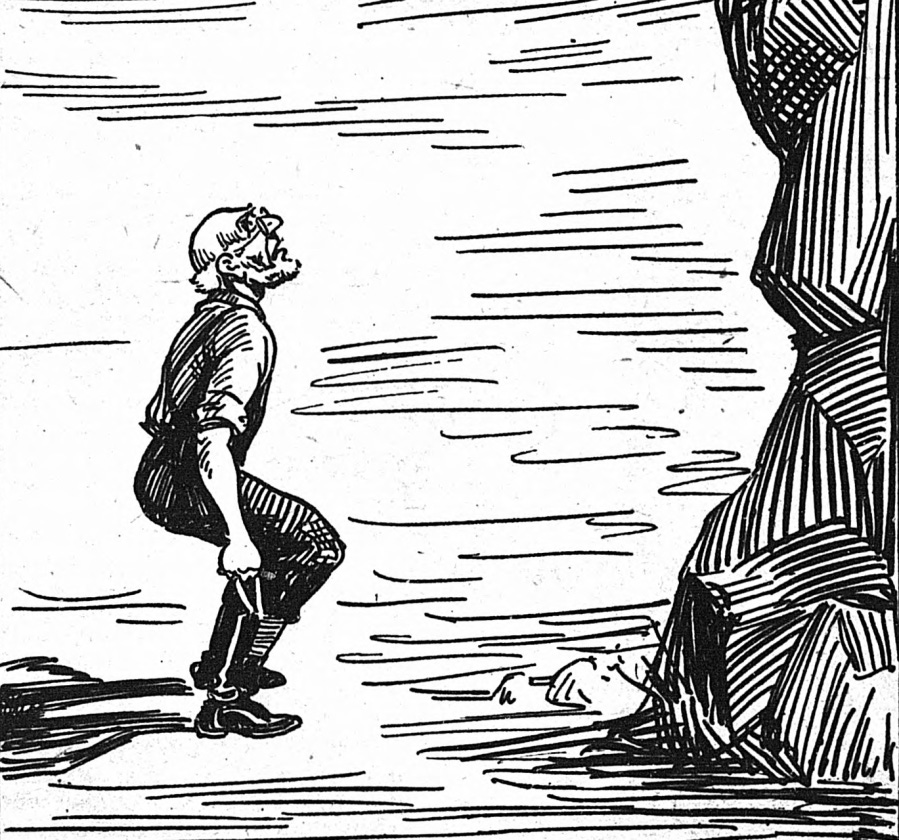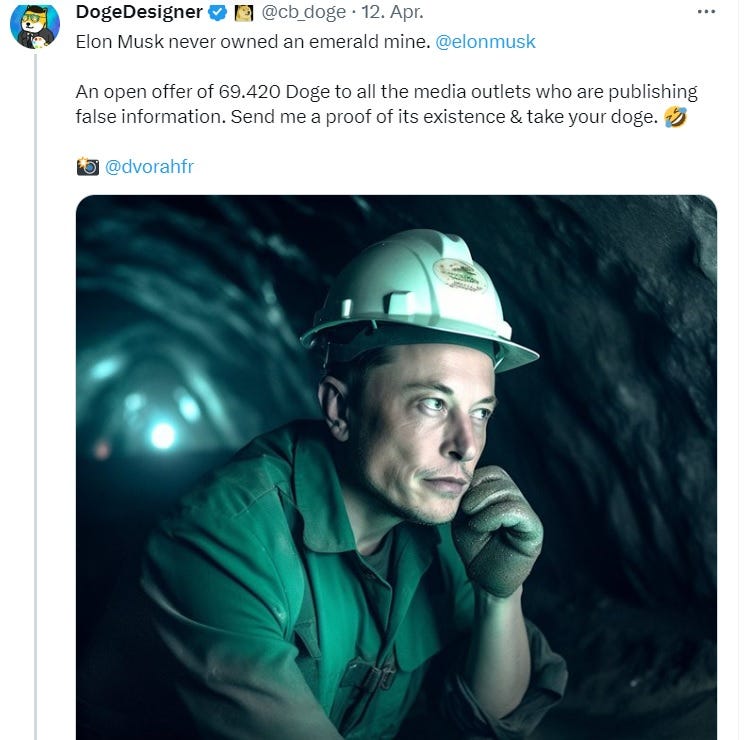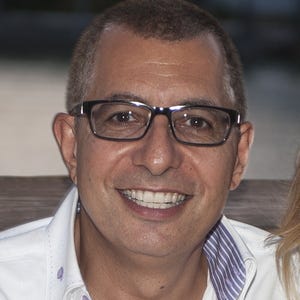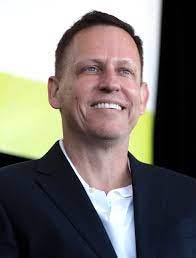Self Made?
Innovation and Elon Musk's (Not So) Humble Beginnings
Part II of the series “Innovation’s Elon Musk Problem”, see Part I.
Elon Musk was not especially privileged, but neither was his family average. The more spectacular claims about his upbringing, such as of the Musk family’s stake in a Zambian emerald mine, a young Elon stealing one of the gems to sell at Tiffany and Co., or not being able to close the family safe, may be tall tales from Elon’s father Errol.
Despite the well-known strained relationship between father and son, they nevertheless share a tendency toward hyperbole. And this hyperbole infects both positive and negative depictions of Musk, channeling into the classic story of tech leaders as either great geniuses or privileged morons. Thinking more sensibly about innovation will require recognizing that neither version of the story is true.
Even if the more extravagant anecdotes about Musk may be a myth, the family nevertheless lived comfortably, and Elon’s father could afford to send him to the tuition-charging Pretoria Boys High School. When Elon wanted to learn to code, Musk senior paid for a ticket to a computing conference in Johannesburg and bought him his own computer. In college, Elon and his roommate managed to rent a 10 bedroom house which they converted into a nightclub. When Elon and Kimbal started their first major venture, Errol claims he gave his sons $28 thousand. His mother, Maye, also chipped in $10 thousand and flew from Toronto to San Francisco every six weeks to buy groceries, supplies, and furnish the office.
None of this necessarily reduces Elon’s achievements. Most middle class Americans have relied on help from their parents. And he is certainly no Donald Trump, who received millions of dollars from his father. Still, Musk really isn’t a “self-made man,” having had advantages beyond what many middle class families can feasibly manage.

But he isn’t unique in this regard. Despite our tendency to tell the “self-made” story of Amazon, Apple Computers, Microsoft and other firms, none of their founders came from abject poverty. Jeff Bezos’s and Steve Wozniak’s fathers were engineers for Exxon and Lockheed, respectively, while a young Bill Gates attended the prestigious Lakeside Preparatory School. The story of the individuals behind innovation isn’t so much “rags to riches” as “upper-middle-class to billionaire.”
Few innovators pull themselves by the bootstraps from abject poverty to enroll in Stanford University, but they are still highly driven individuals. Elon Musk’s work ethic is prodigious. He’s been known to sleep at his Tesla factory rather than go home at the end of the day. But the often forgotten components of the Horatio Alger story are good luck and serendipitous connections, which actually does a lot to explain success in the tech industry.
Musk’s first venture, Zip2, offered businesses a way to better connect with potential customers using the still nascent Internet. The core product could be seen as a predecessor of today’s Yelp and Google Maps. Although the firm never really left start-up territory, it attracted the attention of Compaq, who purchased it for $307 million during the last year of the dotcom bubble.
But Zip2 had no future without Musk family friend Greg Kouri. He brought something Elon and Kimbal sorely lacked: experience and business expertise. It was pure serendipity that he was there to invest $6 thousand on the spot and move to California to join as a cofounder. Kouri was vital in attracting the initial venture capital, such as from Derek Proudian and Mohr Davidow. The Musk brothers owe quite a bit of Zip2’s success to the guidance and generosity of Kouri, providing what biographer Ashlee Vance referred to as “adult supervision,” such as breaking up fistfights between Kimbal and Elon. Family connections can be just as valuable as family money.
Neither could Musk’s visions be brought to life without engineers to help him. Although Musk spent all his waking hours coding in the early days of Zip2, most of the important technical contributions came from others. Musk was self-taught, while professionals could finish a job in a fraction of the time and in far fewer lines. After the initial round of VC funds in 1996 allowed Zip2 to offer competitive salaries, the engineers they hired had to completely rewrite Musk’s code.
Musk’s second company, X.com, founded in March of 1999, was another collaborative effort. The idea was for an Internet bank, the precursor to PayPal. Although Musk claims to have come up with the idea himself during an internship at the Bank of Nova Scotia, his co-founders, Edward Ho and financiers Harris Fricker and Christopher Payne, had similar ideas, and they brought the expertise needed to get it off the ground.
Technological advancement is more the product of groups and organizations than of individuals. It results from the confluence of different people’s expertise and the support of finance, not from lone genius.
It was with X.com that Musk fell into his now familiar pattern of making big, revolutionary, and often exaggerated promises. While Elon was out promising to take banking completely online, his co-founders were busy navigating the complicated legal morass that made his claims legally impossible. Musk’s flamboyant claims led Fricker to eventually initiate a coup, threatening to take the rest of the board and most of the engineers with him unless he replaced Musk as CEO. Musk let them go.
X.com did eventually start to function like a business, becoming part of PayPal after merging with a competing service run by Peter Theil: Confinity. The success of PayPal can be largely attributed to the superior technology behind Confinity and the firm’s relationship with eBay, who would eventually buy Paypal for $1.5 billion. Although Musk should be credited for his hard work, tenacity, ideas, and influence on Confinity through its competition with X.com, the story of PayPal is one of a confluence of a lot of hard working people coming together at the right time and place.
Musk’s ideas, hard work, and dedication certainly contributed to success at Zip2 and X.com to some extent, but without help Musk’s companies would have gotten nowhere. Whether the support of a caring family friend for two brothers new to the tech startup game, the professional coders and engineers that make the realization of Musk’s visions possible, co-founders who share the credit for the original ideas, or competitors turned partners bringing a more sellable product. At almost no point was Musk alone in his endeavors.
And that is true for innovation in general. As we’ll see in the next installment. Technological advancement is more the product of groups and organizations than of individuals. It results from the confluence of different people’s expertise and the support of finance, not from lone genius. Only upon recognizing this alternative story of innovation, can we imagine new ways of supporting more broadly beneficial technological change.









I don't really get this whole elon thing. As an engineer, it's pretty obvious he doesn't do any of the stuff his companies do. The engineers do it. This all seems like twitter drama.
Anyway, are you arguing: "The overcelebration of managers in tech limit innovation"? I could buy that, but you need a lot a proof since (naively) I'd expect any celebration of any individuals to be beneficial. Musk is an important case study in this argument, but is otherwise fairly uninteresting (to me). Does he suck up and missalocate capital, in way that would be intolerable if he wasn't so famous? I dont know. I guess Im looking forward to the next article.
I'm skeptical, though, because there are serious structural impediments to innovation in the private sector that may dominate. Innovation is risky and it's only worth pursuing if existing products are fully optimized/are going obscelete. An executive at AFRL told me that big aerospace companies stopped R&D on years when the R&D tax credit expired (I have not verified this fully). Moreover, Bell Telphone had natural monopoly protection and thus did basic research to keep Washington happy. They actually innovated themselves out of business.
Perhaps the private sector only does high risk developement with exogenous pressure, so a "gritty idiot" is like Musk is essential? Again, idk.